PHOTO: Acapulco is falling apart after it got smashed by the hurricane. Who is gonna help the people?

To say that Acapulco is recovering from the tragedy would be far from the truth. The tragedy in the city of milion people is happening right now, even though Hurricane Otis devastated it last Wednesday. The city remains virtually isolated, without much outside help.
Note: This text was written on Sunday night. Since then some things could have slightly changed.
The southern Mexican port of Acapulco is a five-hour drive from the capital Ciudad de México, about an hour by plane. Yet in recent days the distance between these cities has become almost unbeatable. The resort found itself isolated after a fifth-degree hurricane, with speeds of up to 270 kilometers per hour, swept through the area on Wednesday night, claiming at least 43 lives.
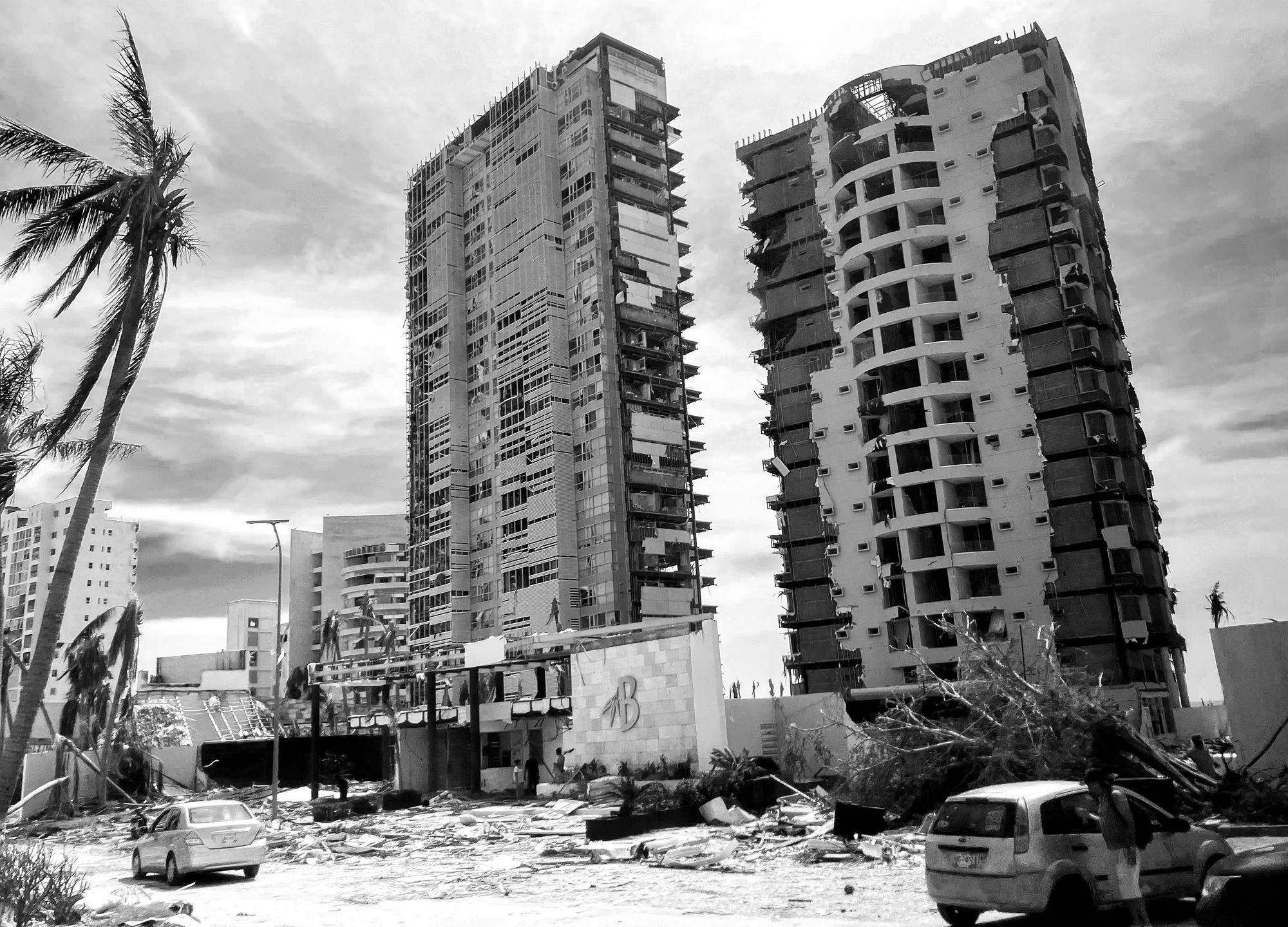
The local airport is partially under water and flights have been canceled, while access by land is complicated by hours-long queues due to destroyed infrastructure, which locals say gangs are taking advantage of by ambushing parked cars. The town is without signal and internet, so many people have no way of contacting their loved ones to tell them they are okay.
Acapulco totally isolated and falling apart after the hurricane Otis
so we decided to go...
This was also the case for a friend Jose in Ciudad de México who is from Acapulco. Since the hurricane hit, he lost contact with his family and had no idea if they were okay until Friday. In the first moments, there was no way to get into the city. On the other hand, we were joined by José Miguel, who was supposed to return to his family in Acapulco on Thursday, but his flight was canceled. On Thursday, however, reports also began to come in that the road was complicated but passable. So we decided to go on Friday.
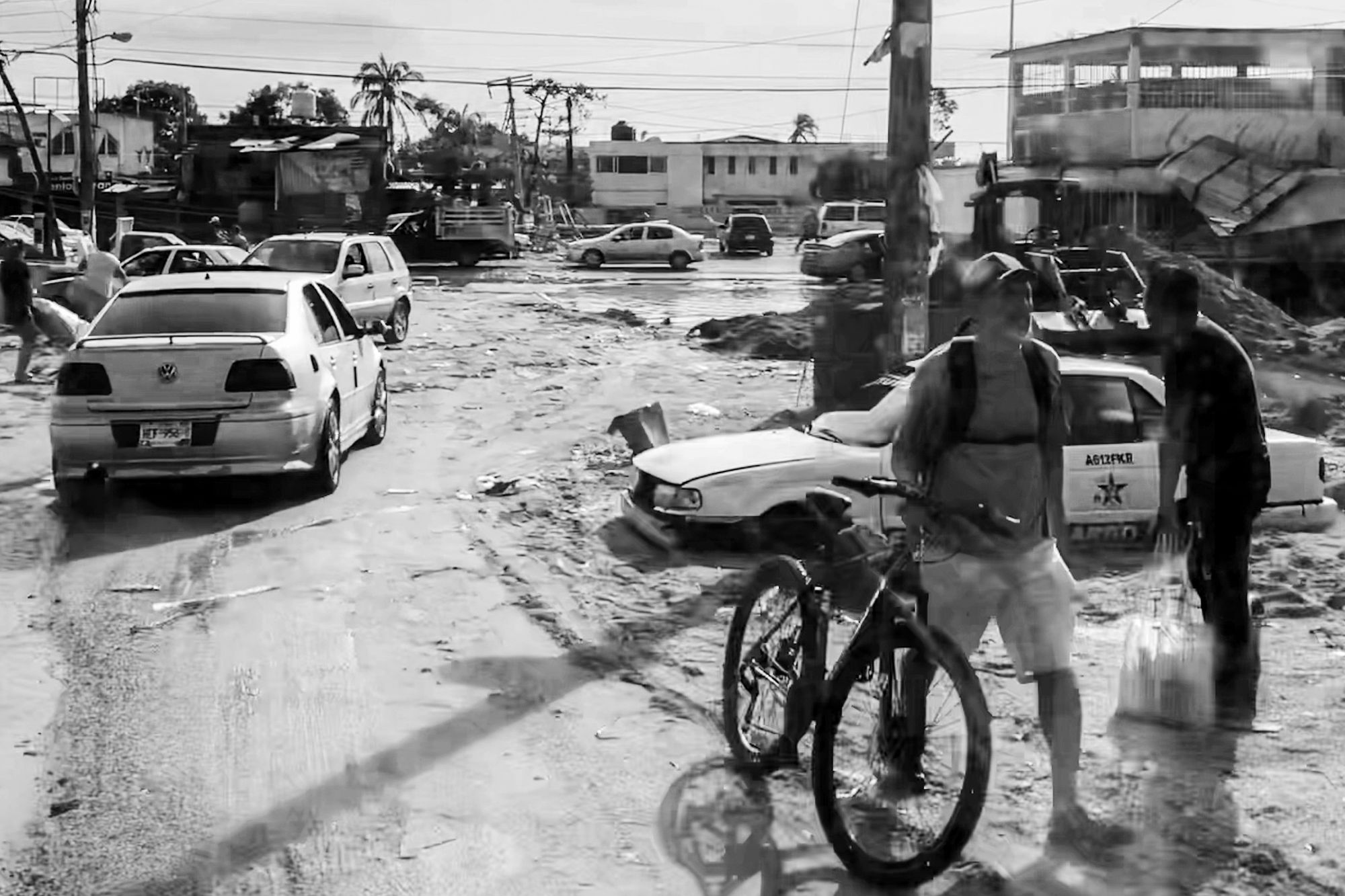
The three of us spent a long and cheerless night over a bottle of tequila thinking through the logistics of the trip. And most importantly, we took courage from reading all the messages that came to us from different sources, which always started with the words: Don't go to Acapulco under any circumstances! Acapulco insiders who got to places with the occasional signal to call described how every part of the city was collapsing and armed gangs were rampaging through the driveways, not letting a single car pass unharmed. Some eventually had their very cars stolen.
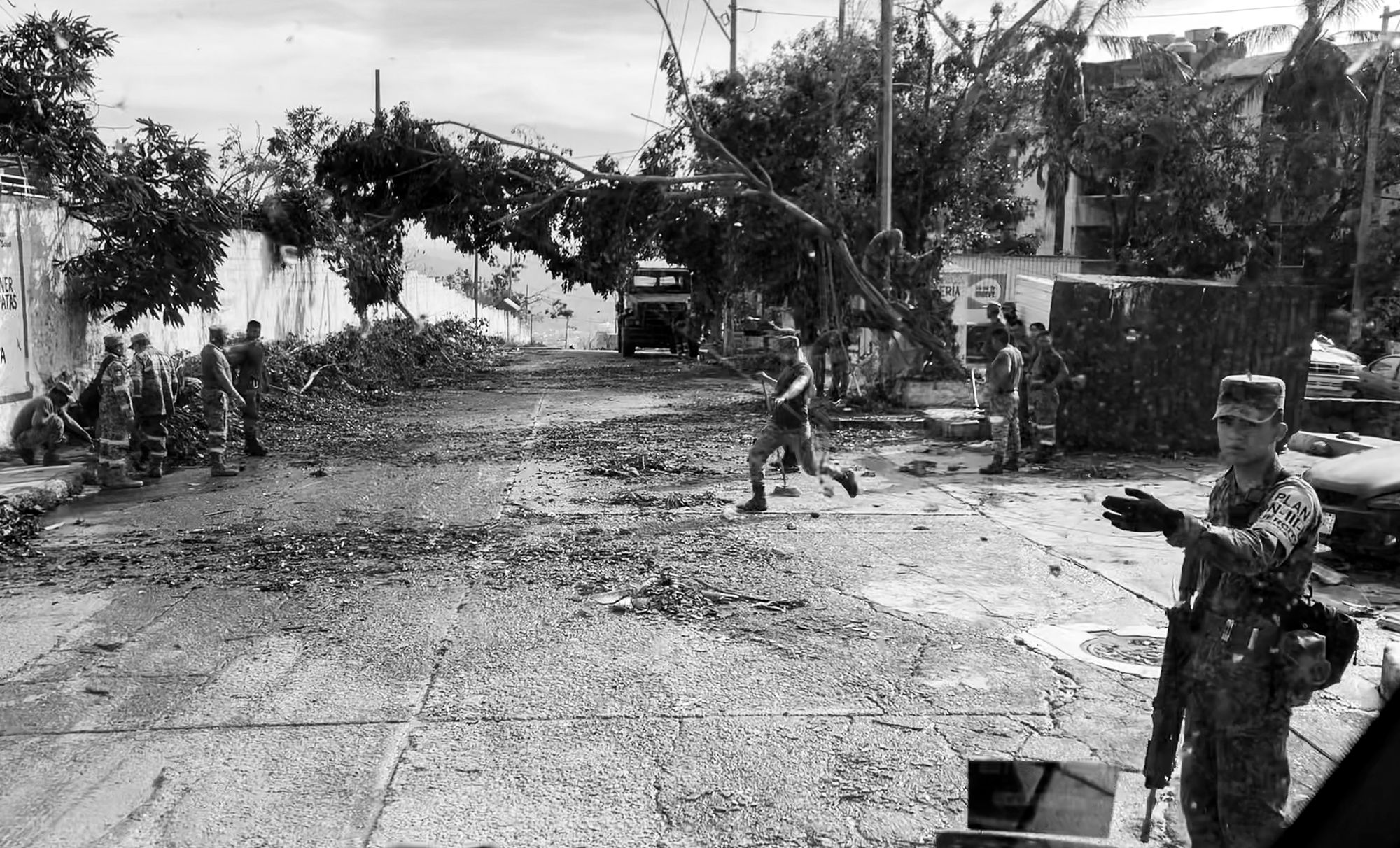
It seemed that we had no chance of arriving in Acapulco in one piece and with a load of food. So... we rented an ambulance. We hoped that by joining the medical convoy, we would have at least some chance of getting into the city without any problems. A friend organized such a relief flotilla and invited us non-medics to go check on and provide for our friends.
On Friday night we met at the arranged place and filled three ambulances with food, water, hygiene supplies, and canisters of diesel and gasoline. An hour after midnight we were finally ready to leave. At two in the morning, we passed the nearby town of Cuernavaca, at approximately two and five minutes smoke started coming from the ambulance in front of us and we had to stop at the nearest gas station. At four in the morning, it was decided to leave the third car alone at the gas station in Cuernavaca and split its load. Around seven thirty we entered the border of Acapulco.
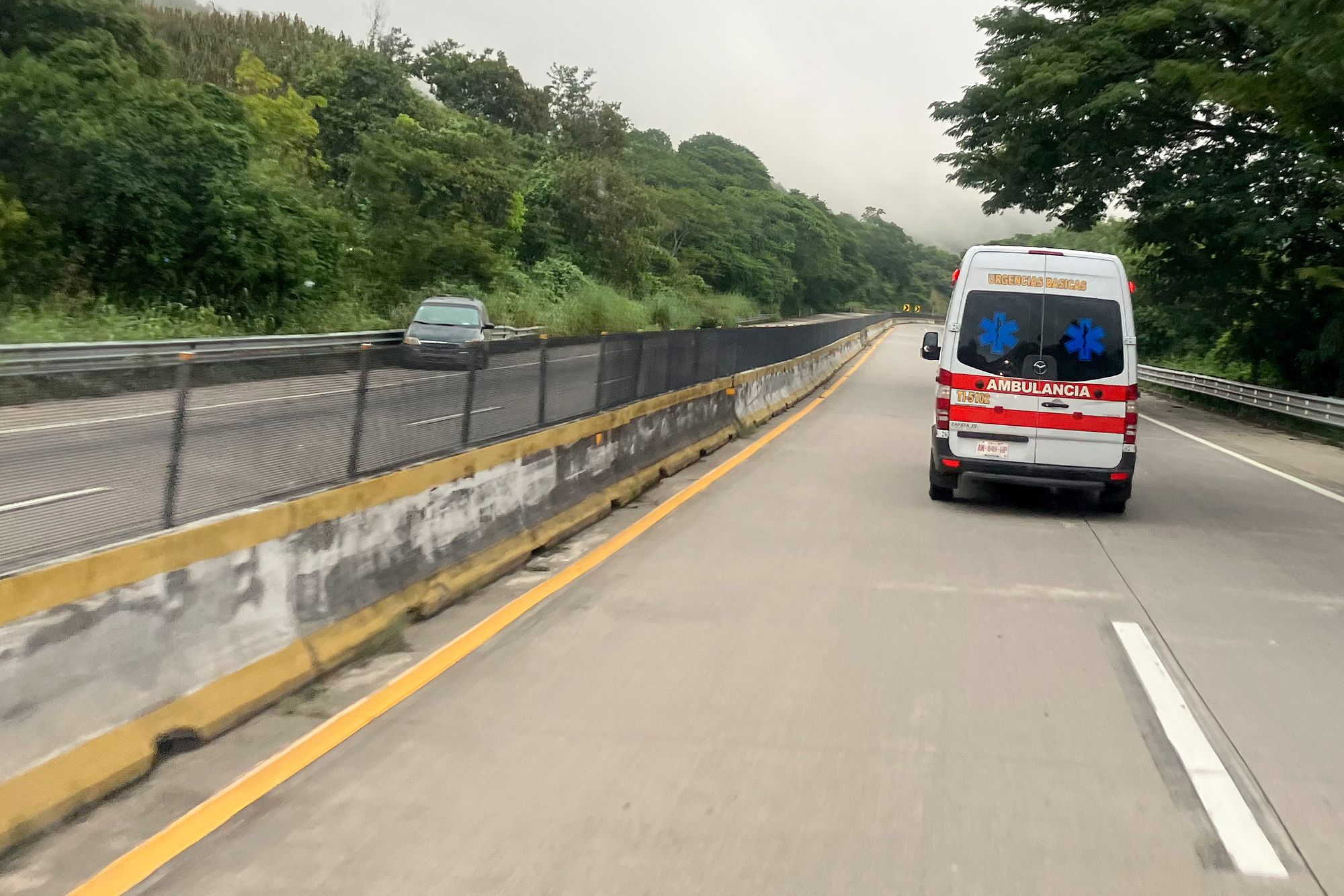
Long before arriving in the town, traffic queues began to form, with people of all generations passing by, heading to the far corners to get food and drink. At that moment, food was worth more than money, which is now worthless in Acapulco. Fortunately, none of those whom all our informants had warned us about appeared. We whizzed through the devastated city with the other ambulances.
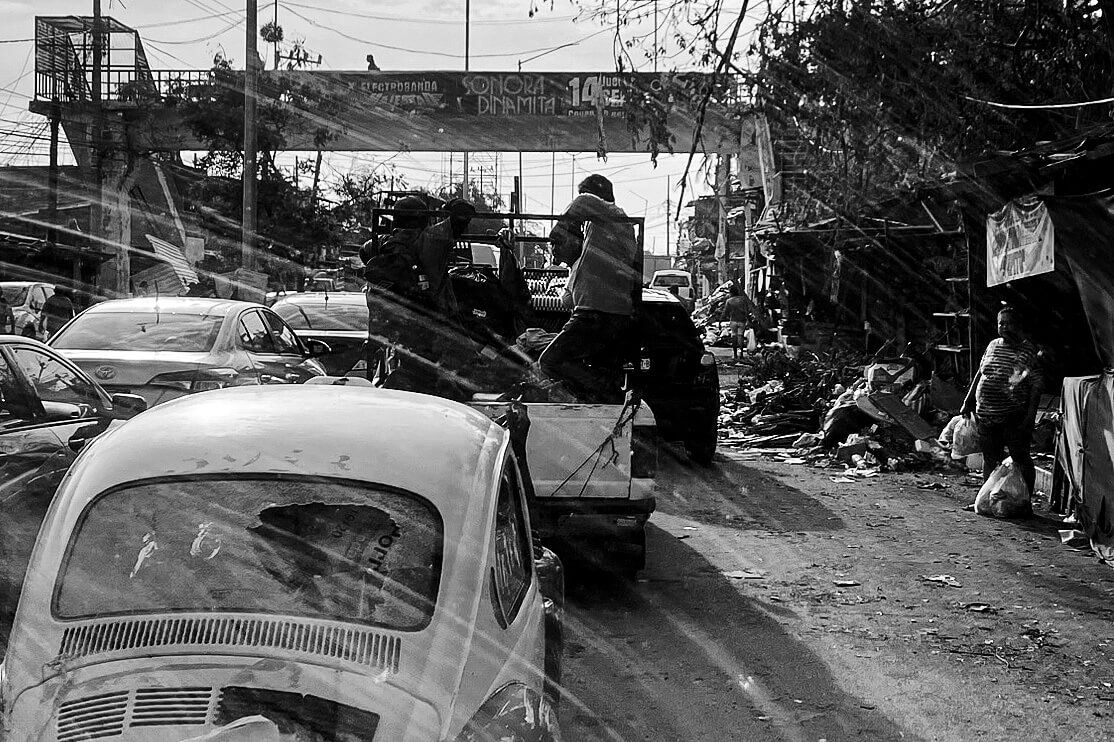
Trees and power poles lay scattered around, some roads were under water or covered with mud, houses had lost their windows and roofs, and some buildings were left with only bare structures. People were swarming through the town looking for supplies. All the shops had been looted by this time, and dozens of pairs of shoes were piled outside one of the malls - perhaps a charity from a store they would have come to loot anyway. Nearby, people were stacking cartons of beer on their carts - the alcohol, oddly enough, was the last thing left on the shelves this time, as no one wanted to risk the thirst and hunger that comes with it. "It's one thing to go to a closed shop to get food for the family. It's another thing to take a TV set from there or vandalize someone else's property," the locals fumed.
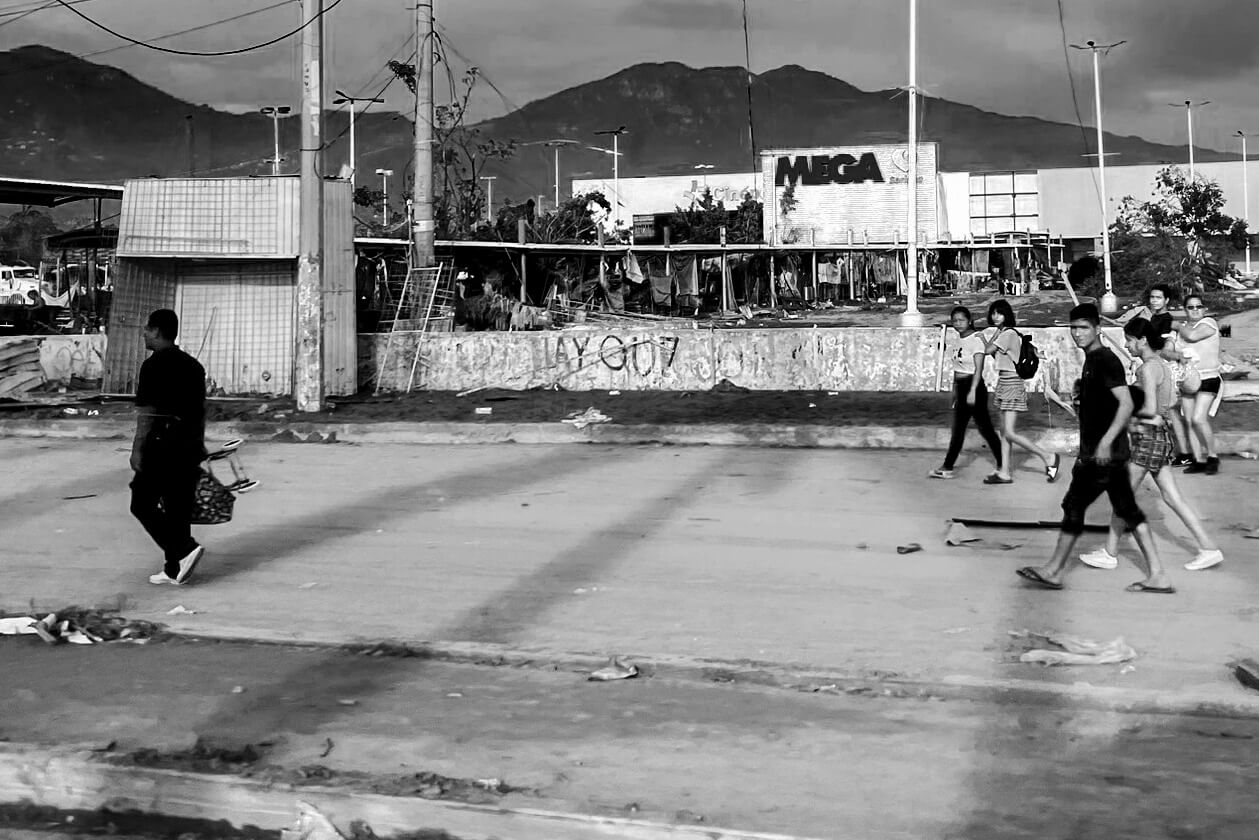
Even the experienced medics in our convoy feared that frustrated people would gather around us and start demanding help. We also adjusted the arrangement of the contraband so that the "excited crowd" would get to some things first and others last. Let alone our personal belongings. In the end, however, there was no need, we encountered no danger during the whole day of cruising around the city. On the contrary, the people were kind and grateful. Several times they came up to us and asked for some supplies, we gave them what we could, or at least gave them a ride if they needed one. Public transportation hasn't been working here since Wednesday.
Where is the help for Acapulco?
There were a surprising number of Marines and National Guard soldiers on the streets. From what the locals tell me, their numbers have only now multiplied. Maybe that's why the streets weren't suddenly so dangerous. Unfortunately, it cannot be said that humanitarian aid arrived on the scene with them. At least in Mexico City, aid intended for Acapulco began to be collected from the first day. At the same time, however, suspicions began to spread that they were ending up with the authorities who were supposed to distribute them. "Acapulco is currently a state without a government," an Acapulco friend described to me, lamenting that the government was not delivering any of the promised aid.
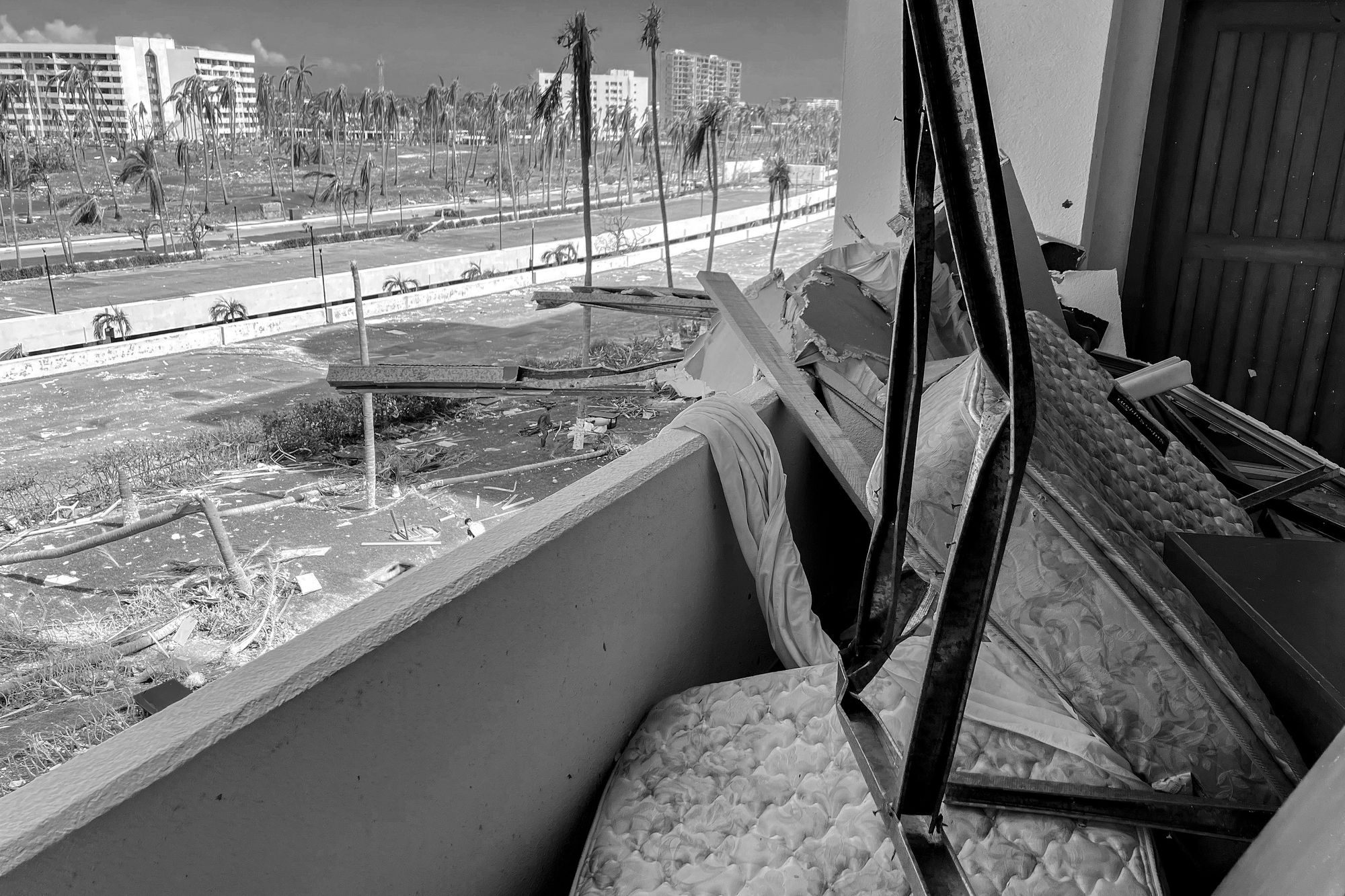
In an entire day of pendulating from one end of a city of a million people to the other, I saw only one miniature army checkpoint where, according to the signs, they were dispensing some kind of aid. But most of the people I talked to had eaten essentially nothing since that fateful moment, had drunk little, and many had health problems and, not least, had lost property. Many even lost loved ones.
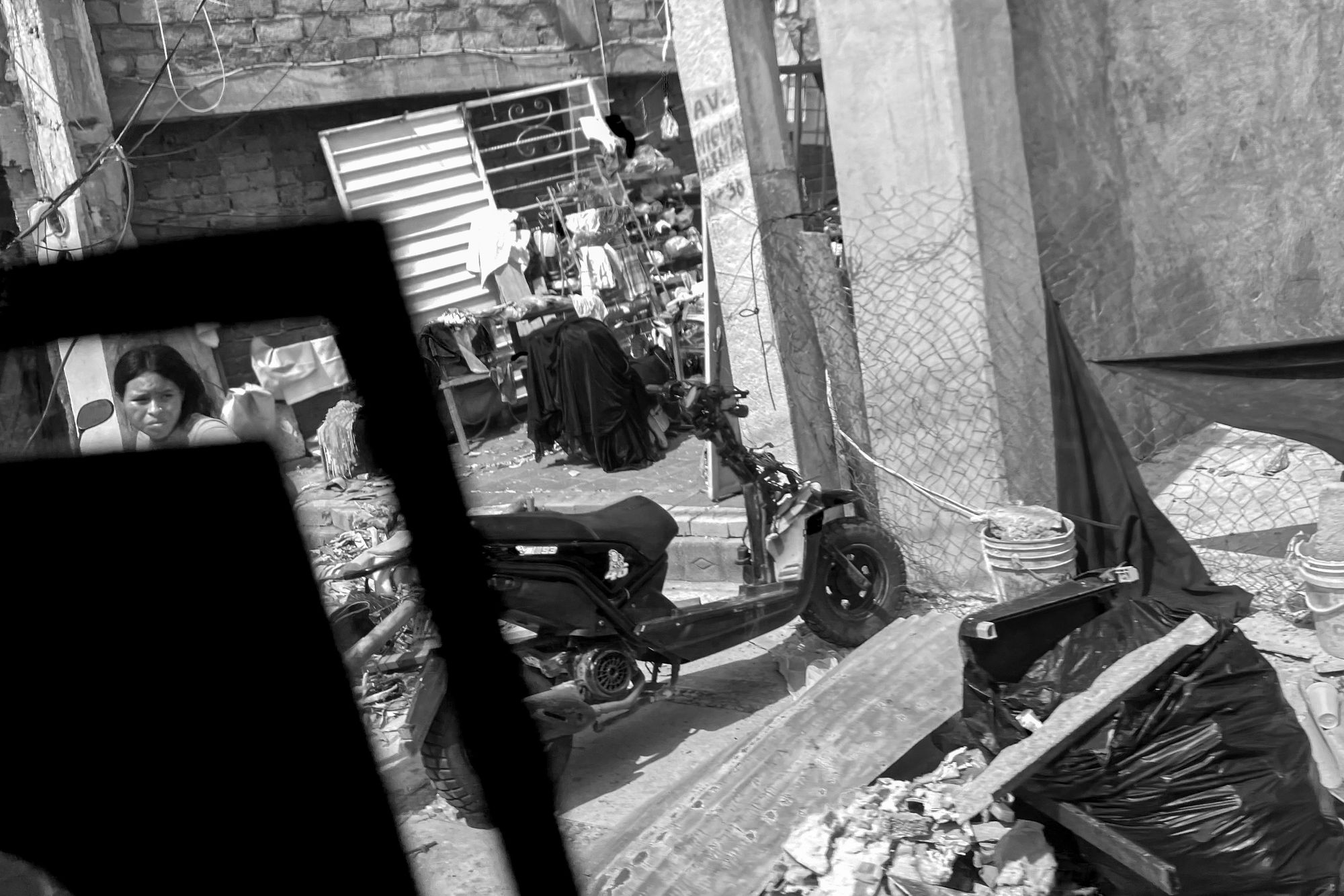
It was only after we had delivered the last aid package in the dark that I realized what it means when a city like Acapulco is without power and signal. The debris-filled streets were dark, as were the houses. The people in them were lying down, with no way to wash, in hot rooms where, without fans, they were easy prey for mosquitoes. Only to wake up the next day to another nightmare without basic necessities and with little hope that things would soon improve. It will, but it certainly won't be soon.
Note 2: After days, it seems to me from the news coming from Acapulco that more help finally began to arrive. Also, the rumors of the rise of violence seem to be mostly debunked. And finally, it seems even politicians woke up.
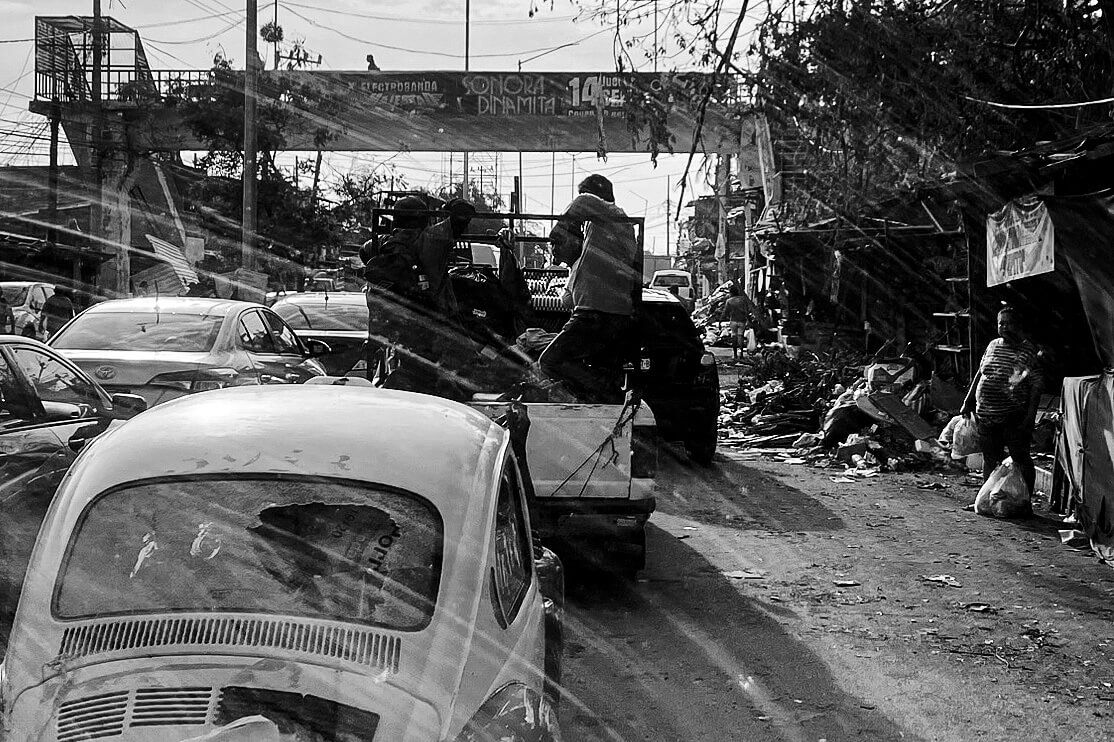
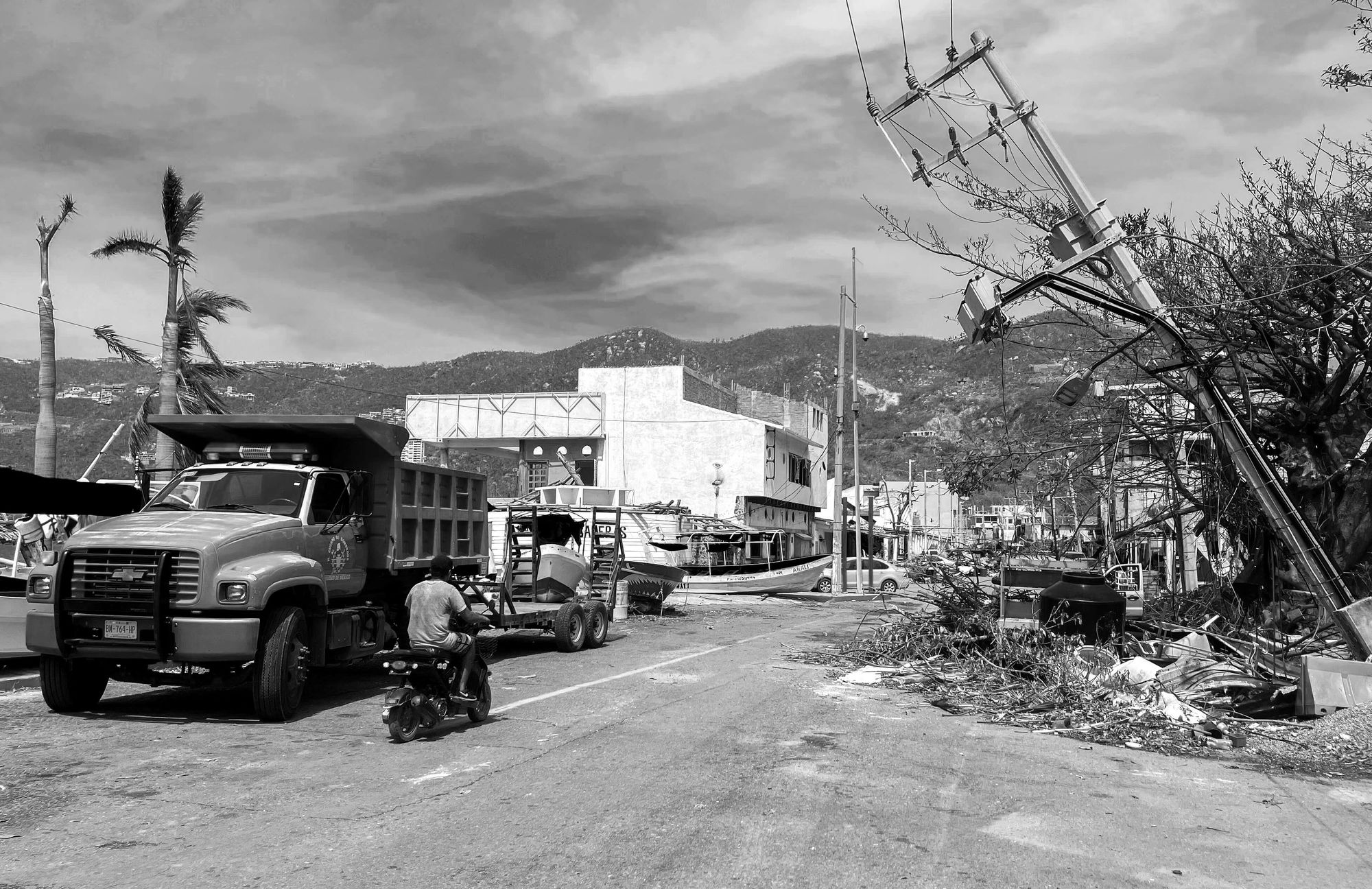
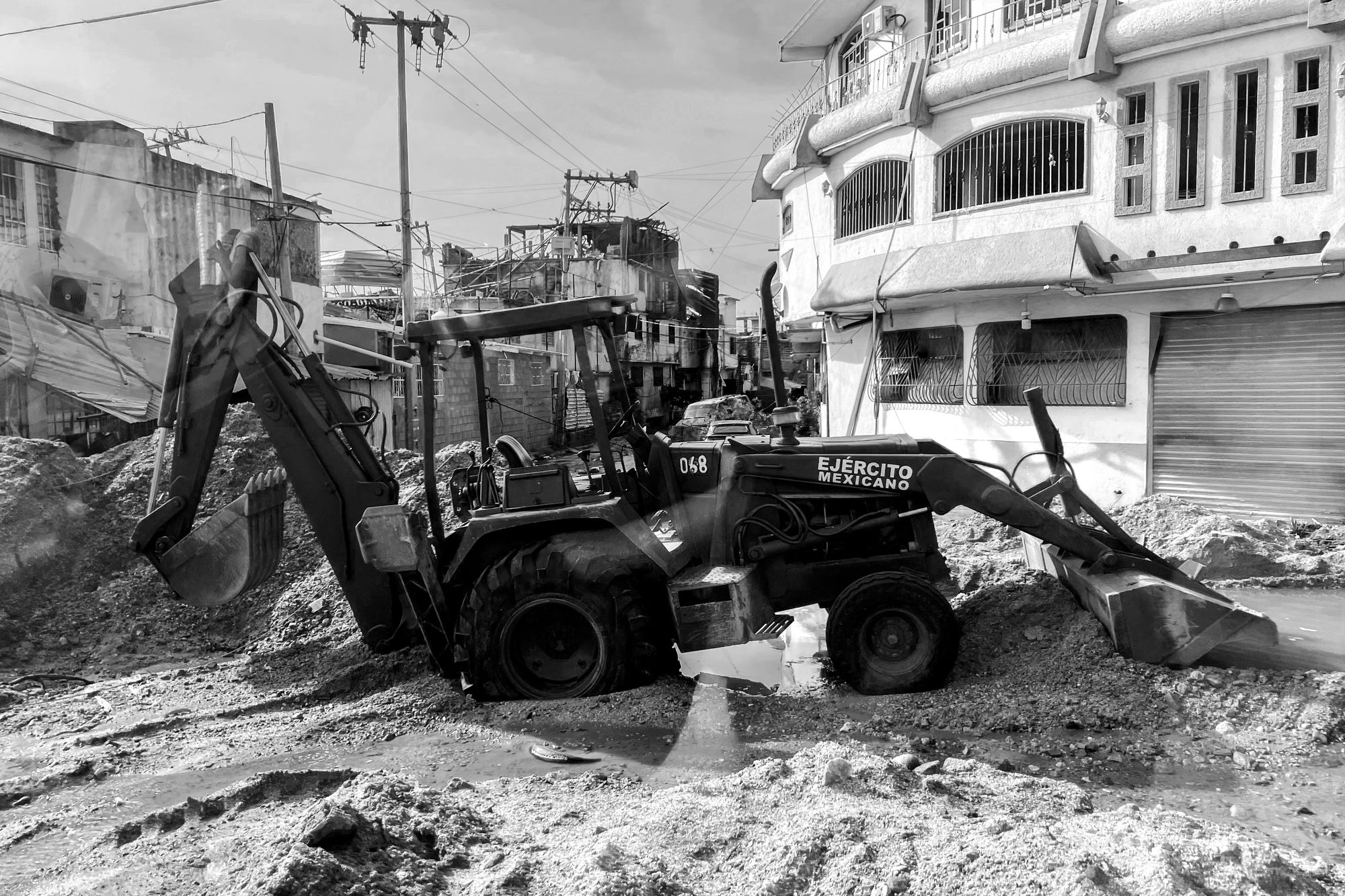
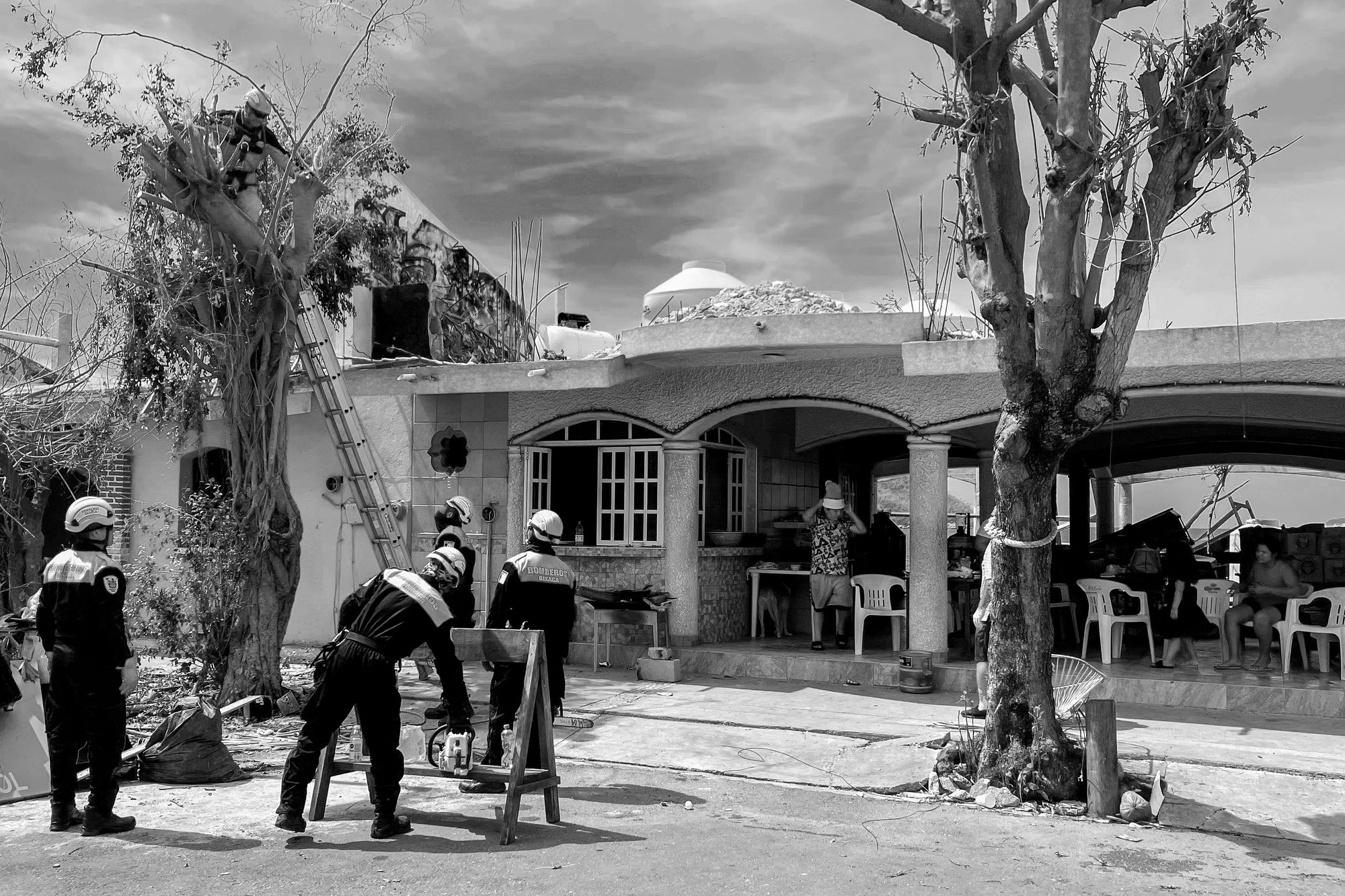
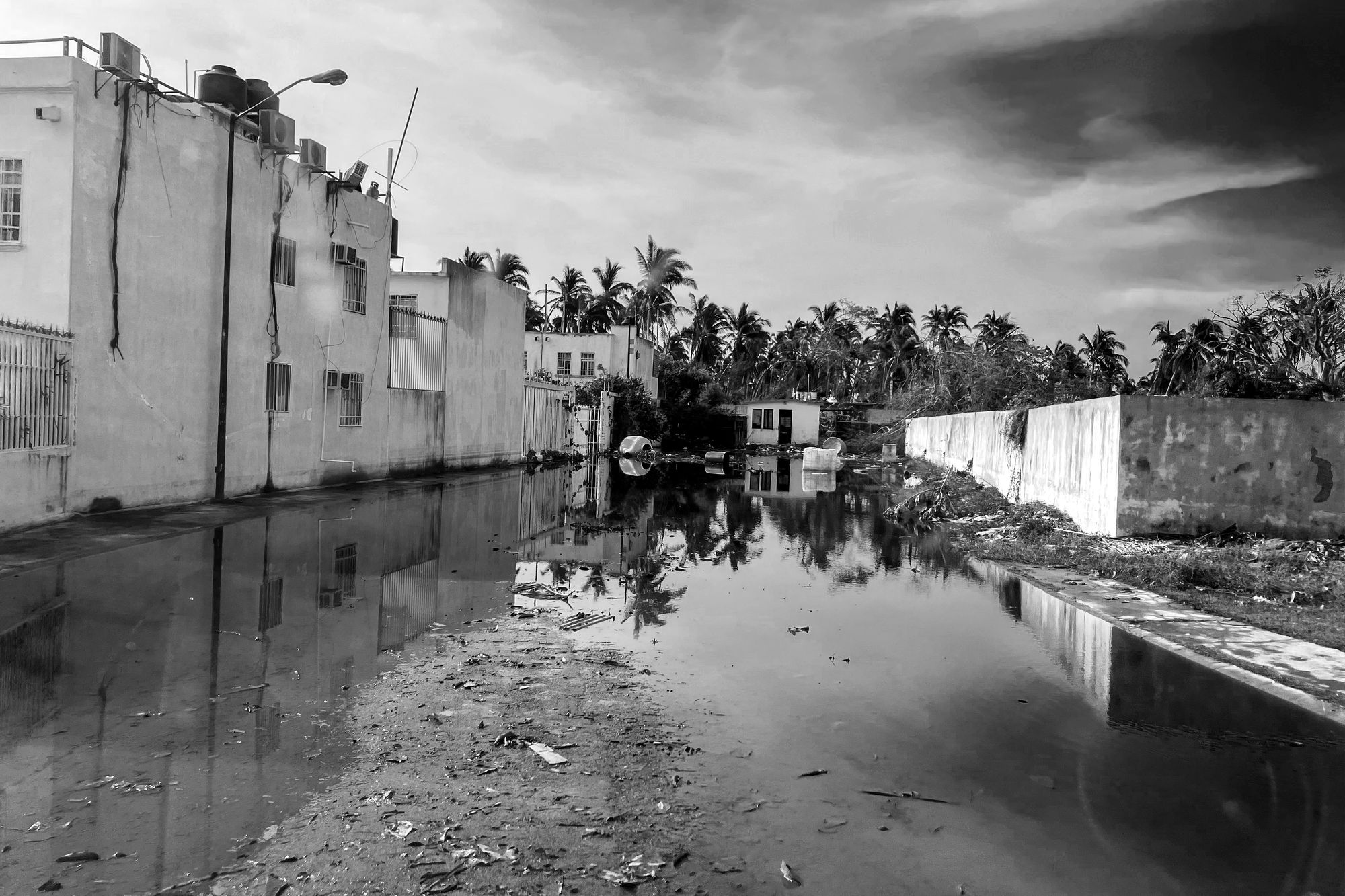
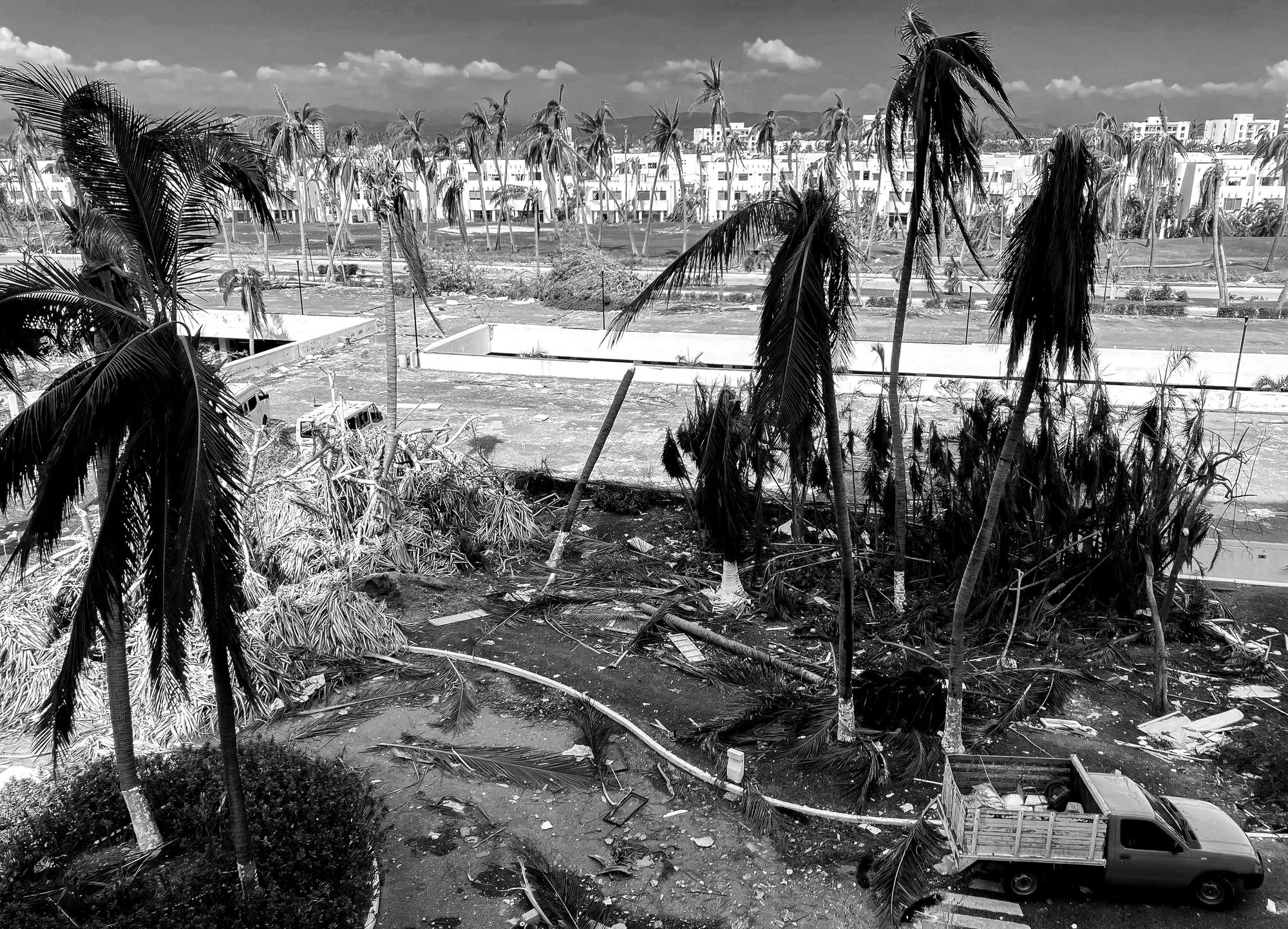
Mexican town of Acapulco four days after it got smashed by the hurricane Otis. (Foto: Václav Lang)

